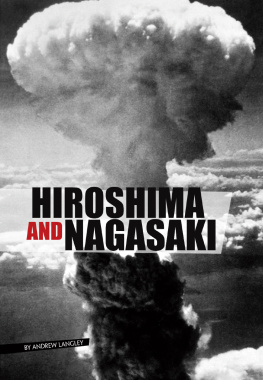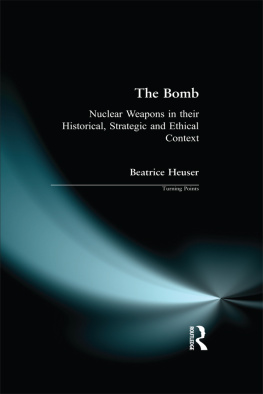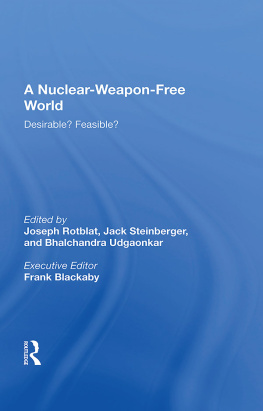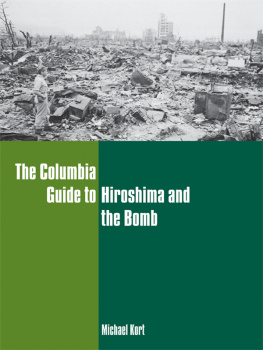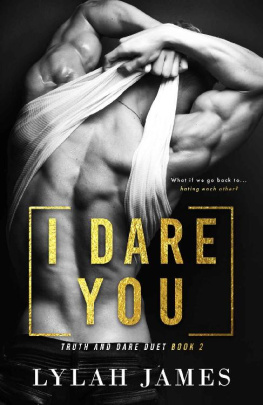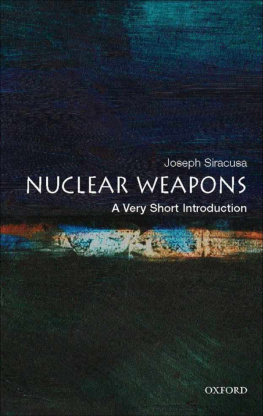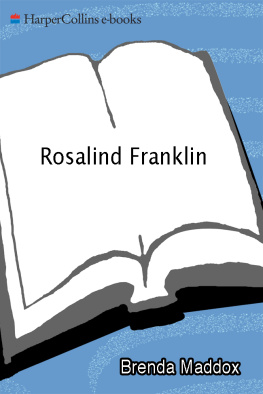Copyright 1995 by
The Curators of the University of Missouri
University of Missouri Press, Columbia, Missouri 65201
Printed and bound in the United States of America
All rights reserved
First paperback printing, 2004
5 4 3 2 1 08 07 06 05 04
Library of Congress Cataloging-in-Publication Data
Maddox, Robert James.
Weapons for victory : the Hiroshima decision / Robert James Maddox.
p. cm.
Includes bibliographical references and index.
ISBN 0-8262-1562-9 (alk. paper)
1. Hiroshima-shi (Japan)HistoryBombardment, 1945. 2. Nagasaki-shi (Japan)HistoryBombardment, 1945. 3. Atomic bombHistory. 4. United StatesMilitary policy. 5. Nuclear warfareMoral and ethical aspects. 6. United StatesForeign relationsSoviet Union. 7. Soviet UnionForeign relationsUnited States. I. Title.
D767.25.H6M23 1995
940.5425dc20
95-20129
CIP

This paper meets the requirements of the American National Standard for Permanence of Paper for Printed Library Materials, Z39.48, 1984.
Designer: Stephanie Foley
Typesetter: BOOKCOMP
Printer and Binder: Thomson-Shore, Inc.
Typefaces: Franklin Gothic and Palatino
ISBN-13: 978-0-8262-7433-5 (electronic)
INTRODUCTION TO THE NEW EDITION
This volume originally appeared in 1995, the fiftieth anniversary of the end of World War II. That year witnessed a deluge of books, articles, and television programs about various aspects of the conflict. Most of these were celebratory, marking the achievements of what Tom Brokaw famously referred to as the greatest generation. On one subject, however, a highly charged controversy arose: the use of atomic bombs against Japan in early August 1945. The dispute was sparked by the Smithsonian Institutions proposed exhibition of the Enola Gay, the B-29 Superfortress that had dropped the first bomb on Hiroshima. Although the debate initially focused on the text and photographs that would accompany the exhibit, it actually reflected two irreconcilable views about President Harry S. Trumans real motives for using the bombs. A wide variety of individuals and groups quickly joined the fray, including members of the staff at the Smithsonian, academics, veterans organizations, and congresspersons. The media went into a feeding frenzy, and my book and other works on the subject became ammunition for one or the other warring sides. Research published during the years since, I am happy to say, has substantiated the interpretations put forward in Weapons for Victory.
Truman insisted to his dying day that atomic bombs were used to end a bloody war that would have become far bloodier had the projected invasion of its home islands been necessary to subdue Japan. He said his primary concern was to avoid the huge American casualties an invasion would have entailed, but he also claimed that countless Japanese lives were spared that would have been lost during the ground fighting and constant aerial and naval bombardment. On this latter point, one of the most important Japanese wartime officials (Lord Keeper of the Privy Seal Marquis Kido Koichi) later testified that the surrender in August saved twenty million of my innocent compatriots (my emphasis). Ending the war quickly also brought freedom to tens of thousands of Allied prisoners of war who had languished under hideous conditions in POW camps.
A group of individuals that have collectively become known as Hiroshima revisionists flatly deny Trumans version of events. They allege that Truman knew the Japanese had been trying to surrender since the spring of 1945, providing only that their sacred emperor be retained. He spurned Japanese overtures because he wanted the war to continue until atomic bombs became available. The real reason for using them, according to the revisionists, was not to defeat an already defeated Japan but to cow the Soviet Union into accepting American hegemony in Europe and elsewhere. Trumans talk of preventing enormous casualties, therefore, was merely a smoke screen designed to make use of the bombs palatable to the American people. Actually, it was part of a conspiracy to keep from them the fact that the bombs were employed for political rather than military ends. The thrust of Weapons for Victory is to show that revisionist allegations are based on pervasive misuses of the historical record and should not be taken seriously.
The key to understanding the Truman administrations position during the latter months of the war is the doctrine of Unconditional Surrender, announced by President Franklin D. Roosevelt at the Casablanca Conference in January 1943. The object of this policy, Roosevelt stated, was not to destroy the populations of the Axis Powers, but rather to demolish the philosophies... based on conquest and the subjugation of other people. With regard to Japan, this meant the elimination of militarism, of the large corporations that had provided the sinews of war, and of the imperial institutions (though not necessarily the person of the emperor, who some were willing to have continue as a constitutional monarch). Such a radical transformation could only be accomplished by the total defeat of Japan and the occupation of its home islands. Anything short of this, however attractive in the short run, would expose future generations to an even more costly conflict against a resurgent Japan. Adherents of Unconditional Surrender, and Truman was one, frequently cited the failure to insist on this policy toward Germany at the end of World War I as a folly that must not be repeated. We are fighting this war, as one official put it, because we did not have unconditional surrender at the end of the last one.
Truman and those around him knew that some Japanese civilian officials, as opposed to military hard-liners, were trying to find a way to end the war. As intercepted messages between Tokyo and the Japanese ambassador to the Soviet Union made clear, however, these individuals in the foreign office sought to persuade the Soviets to broker a peace that would have permitted Japan to maintain its prewar empire and system intact. No American official could have accepted such an inconclusive outcome in view of the enormous sacrifices in blood and treasure made during more than three years of war. Research in Japanese archives published since Weapons appeared has further confirmed the already abundant evidence that the Japanese government was not even close to surrender before the atomic bombs were dropped.
Japanese scholar Sadao Asada, in a 1998 article based on extensive use of Japanese sources, concluded that the shock of the atomic bombs was the most important factor in securing Japanese surrender. He cited one former Japanese official who recalled that The atomic bomb was a golden opportunity given by heaven for Japan to end the war. The bombs enabled the peace party to help the military save face by arguing that Japan had been defeated by superior science rather than by battlefield prowess. Even after both bombs had been dropped and the Soviet Union declared war against Japan, however, the military insisted on three absolute conditions in addition to preservation of the imperial institution: (1) no military occupation of the Japanese home islands, (2) the armed forces be allowed to disarm and demobilize themselves, and (3) war criminals would be prosecuted by the Japanese government, not the Allies. Everyone knew such terms would be unacceptable to the United States, and the emperor had to intervene personally to get the military to back off from its demands. That Japan would have surrendered before the bombs and Soviet entry if only the United States had guaranteed retention of the emperor is, therefore, impossible to credit.


 This paper meets the requirements of the American National Standard for Permanence of Paper for Printed Library Materials, Z39.48, 1984.
This paper meets the requirements of the American National Standard for Permanence of Paper for Printed Library Materials, Z39.48, 1984.
